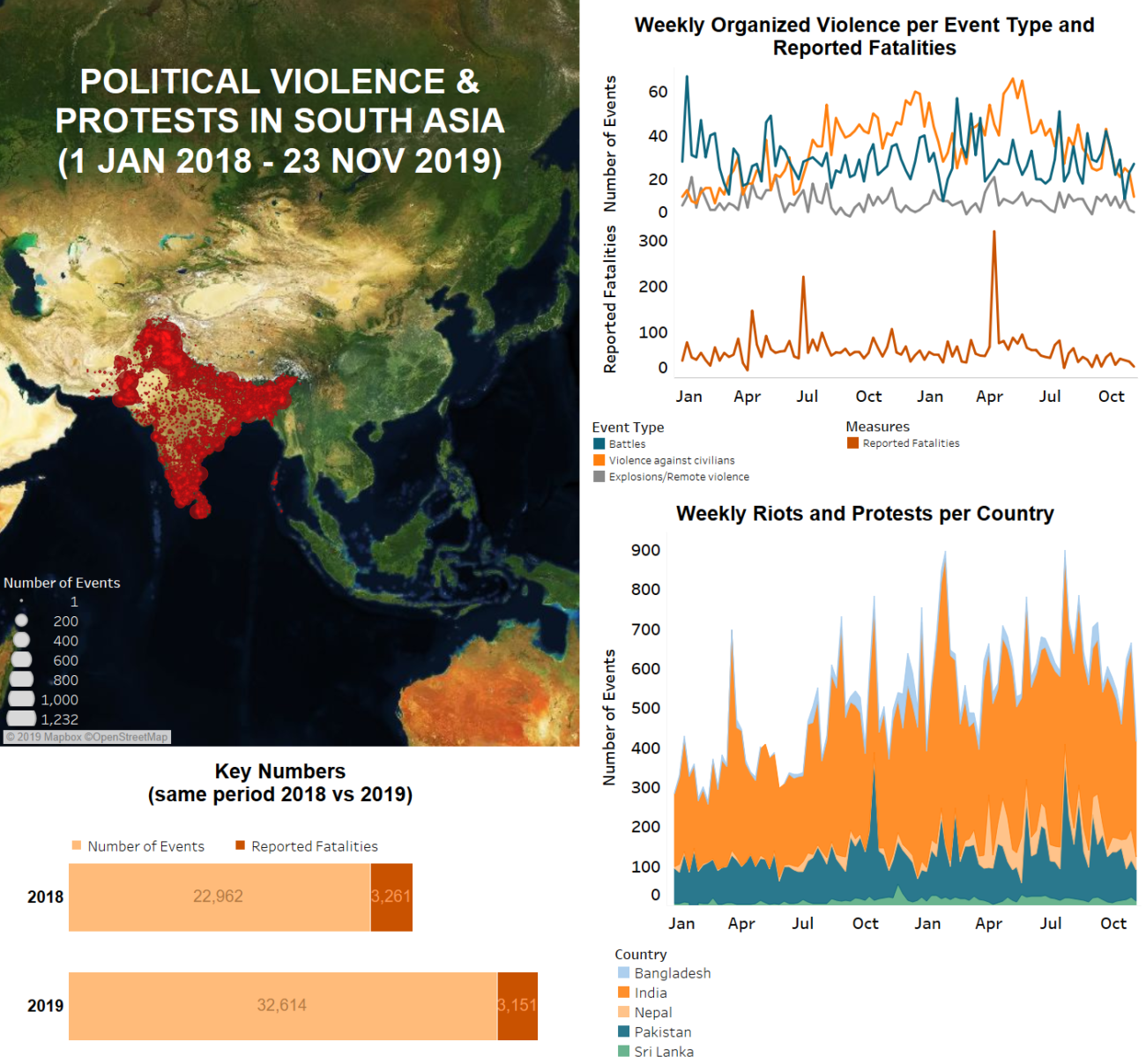Key trends in South Asia last week include: Naxal-Maoist militancy in India’s central-west states; demonstration activity in Jammu and Kashmir; and incidents of post-election violence in Sri Lanka.
In India, Naxal-Maoist militants launched several attacks in the neighboring states of Chhattisgarh and Jharkhand. In Jharkhand, Communist Party of India (CPI) – Maoist cadres staged an ambush on police in Latehar district, reportedly killing four police personnel. The attack, which occurred shortly after a Bharatiya Janata Party (BJP) election rally in the area, came only days before the beginning of the Jharkhand assembly elections. The elections will be split across five phases, from November 30 and December 20, amid concerns over Naxal-Maoist militants employing new tactics to obstruct voting (New Indian Express, 23 November 2019). In neighboring Chhattisgarh state, Naxal-Maoist militants reportedly killed two civil laborers when they triggered an improvised explosive device (IED) in Dantewada district, while a police officer was injured in another IED attack in neighboring Bijapur district. Meanwhile, a suspected Naxal-Maoist militant was reportedly killed during an encounter with District Reserve Guard personnel in Sukma district.
In Jammu and Kashmir (J&K), university students, the Indian National Congress (INC), and the Jammu and Kashmir National Panthers Party (JKNPP) staged separate demonstrations in Jammu division, highlighting demands for the restoration of internet access, as well as the restoration of statehood in the now-union territory of J&K. Whilst INC-led demonstrations formed part of nationwide demonstrations against the BJP central government’s economic management, the demonstrations also highlight an increasing appetite for dissent against ongoing restrictions in J&K. Whilst limited internet access has been restored to government offices, the former state of J&K has remained largely without internet access since the central government announced the abrogation of Article 370 provisions and bifurcation of the former state of J&K into two union territories on August 5 (The Hindu, 19 November 2019).
In Sri Lanka, there were various reports of post-election violence, as new president Gotabaya Rajapaksa appointed his brother and former president, Mahinda Rajapaksa, as the Prime Minister of Sri Lanka (The Guardian, 22 November 2019). Post-election violence included several clashes between supporters of rival political parties, as well as mob violence targeting members of the Tamil community in Sabaragamuwa province. The victims had been accused of failing to vote for Gotabaya Rajapaksa.
© 2019 Armed Conflict Location & Event Data Project (ACLED). All rights reserved.






